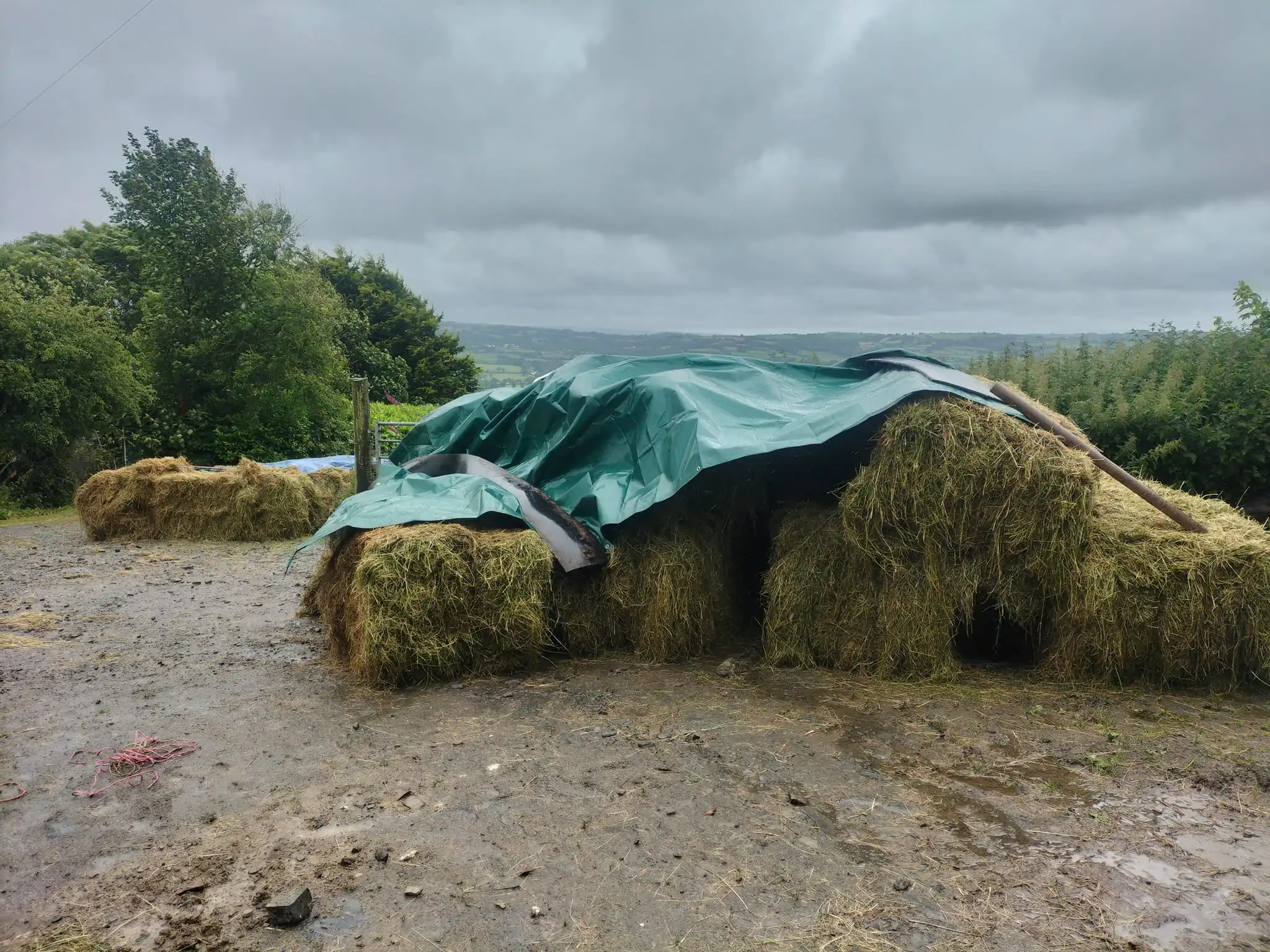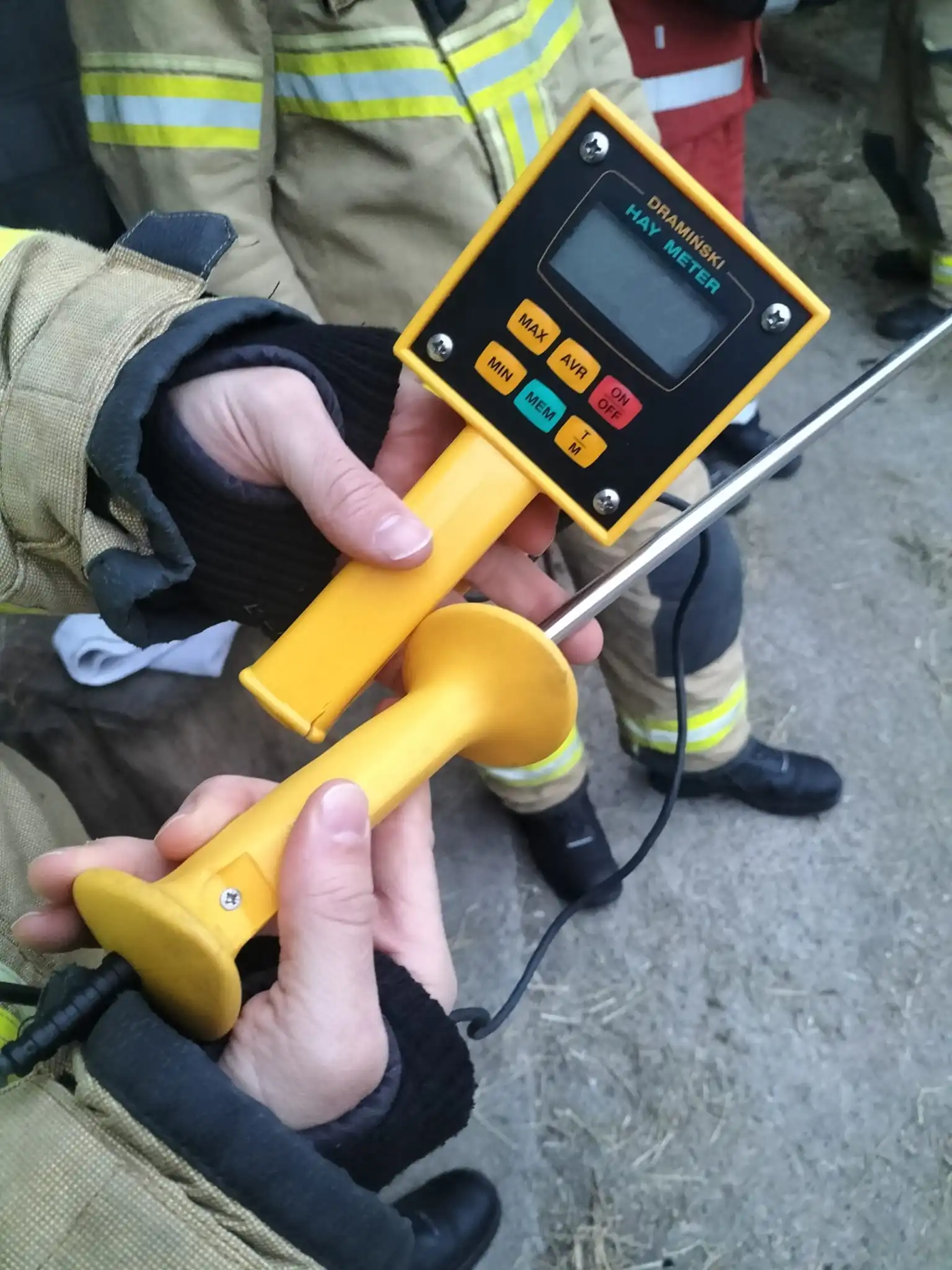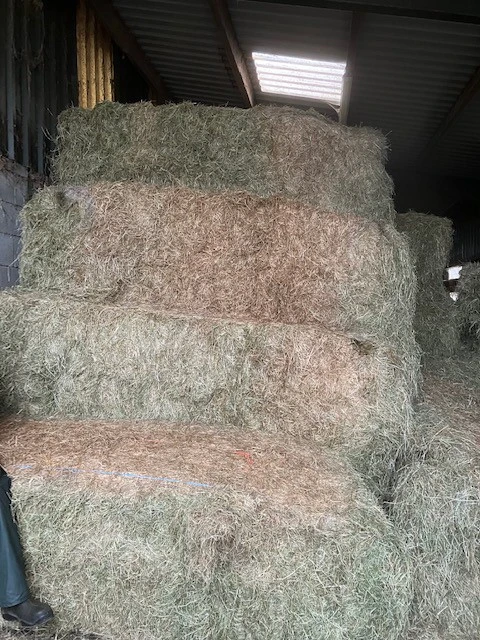At 10.17am on Friday, July 5th, a Tactical Officer from Mid and West Wales Fire and Rescue Service (MAWWFRS) was called to an incident at the Herd on the Hill Animal Sanctuary in Talsarn, following reports of hay bales that were warm to the touch.
The bales were tested for heat and moisture content, with another Tactical Officer reattending the property later that day, along with a crew from Lampeter Fire Station for assistance, to monitor the bales and to carry out a Home Fire Safety Check which involved installing smoke alarms. During these visits, 20 bales were removed from the barn with a reinspection planned for the following day.
During the reinspection, the bales were found to have reached a critical temperature. Approximately 100 bales were required to be removed from the barn and the Lampeter crew was mobilised again as a safety precaution in case any of them caught fire. Crew members continued to monitor the temperature of the bales, with smoke issuing from them.
Farm Fire Safety
A large proportion of Mid and West Wales Fire and Rescue Service’s area is home to a tapestry of rural and agricultural communities. Following this incident, MAWWFRS is issuing a farm fire safety reminder and advice to members of the farming communities:
- FREE Bale Temperature Testing Service
MAWWFRS is pleased to offer a FREE Bale Temperature Testing Service. If you have concerns regarding the temperature of your bales, please contact us to request a check of the temperature and moisture content of the bales, using specialist equipment. Depending on the readings we receive, we will then work with you to formulate a plan to manage the associated risks. To book a free visit, please call 0800 169 1234.
If bales are smouldering or on fire call 999 immediately. - Stored bales must not have a moisture content greater than 22%.
Bales that have a moisture content of 22% or higher pose a risk of increasing in heat once stacked, leading to overheating and possible spontaneous combustion. - The temperature of bales should be bcaning brought off the field for storage.
Bales with a temperature above 35°C can maintain their own heat generation to a point where spontaneous combustion can occur. - Bale Storage Advice
Where possible, stacks should be sited separately, away from other farm buildings, especially livestock buildings. Keep stacks to a reasonable size, well apart and dry. Avoid storing fertilisers, chemicals, gas cylinders, tractors and other machinery in barns containing bales. Ensure that all electrical equipment and wiring is well-maintained.
If bales are smouldering or on fire call 999 immediately. - Signs of bales overheating
Signs of bales overheating may include discolouration or browning in some areas, stacks seen to be ‘steaming’ early in the morning or late evening, the presence of a sweet, sickly smell and hay turning to a tobacco-like form.
Advice and Support
The Service has a variety of ways to help farmers and landowners to best protect their property and livestock from the threat of fire and to plan ahead by:
- Ensuring your Farm Fire Risk Assessment is up-to-date
- Developing a ‘Fire Box’ at the property entrance containing details such as location of water supplies, map land, list of livestock and locations of hazardous materials
- Avoid storing flammable with vehicles or livestock
- Considering whether a fire truck can reach all areas of your property, a standard truck can weigh more than 12 tonnes so pits and cattle grids can be an issue
- Specialist crews can be deployed to rescue an animal from height, water and unstable ground. NEVER put yourself at risk, in the event of your livestock needing rescuing, call 999.
For more information, please visit here.



Latest News
-
Incident Statistics: September 2024
21.10.2024
-
Candle Safety Week 21-27 October 2024
21.10.2024

